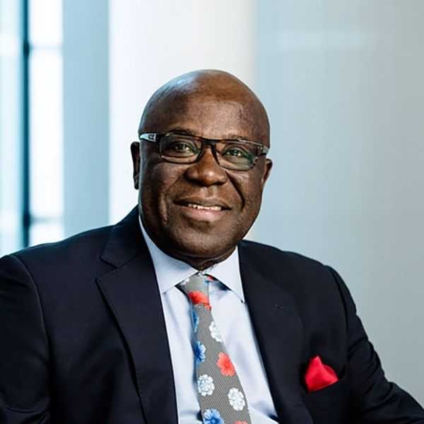Astute businessman, Sam Jonah has described the low level of Ghanaian ownership in the local economy as very disappointing.
In an interview on GTV on Friday, the founder and chairman of Jonah Capital (Pty) Ltd, questioned why the citizenry is not interested in ownership of strategic and crucial sectors of the country such as telcos, mining, oil, and banking.
“Look at your mobile telephony companies, there is no Ghanaian, forget about Vodafone because Vodafone..., Ghana government has a stake and I don't even know what the figure is, may be 20 percent or whatever...,” he said.
The Statesman added that “whether it is MTN, whether it is Airteltigo, there is no Ghanaian who has one percent of any of them. Look at the banks, we have the Nigerian owned, or Standard Chartered, Barclays [Absa], all of them foreign-owned.
“Look at even the insurance companies now, look at the mines, there is no Ghanaian who has one percent of any of the mines, no Ghanaian, it is a fact. There is no Ghanaian who has one percent of any of the oil, Tullow or whatever, so Tullow, when they take their money, where do you think they will take it, outside,” he stressed.
According to him, a deliberate government policy should be implemented to encourage Ghanaians to help and support the resolution of economic problems.
“So if you sit there idle and you don't do anything, equity does not assist the indolent, you don't do anything, they [foreign investors] take their money away,” he noted.
The former Anglogold Ashanti Executive President’s comment on ownership comes in response to claims that he did little to ameliorate the sufferings of the Obuasi township, where gold has been mined for more than 120 years while he was heading the Prestea Bogoso mine.
Reacting to this claim, Mr Jonah said he has no hand in the undeveloped state of the Obuasi township.
He explained that he cannot be held responsible because he was not the owner of the Obuasi mine and that he only worked for the owners, who were foreigners.
According to him, the Obuasi mine had been owned by foreigners until 1969, when the Ghana government became a part-owner.
He added that it is the government that decided what to do with the mine's revenue, which is channeled into the national coffers to support the entire country's economy.
Latest Stories
-
Queenmother calls on President-elect Mahama to appoint more women in his government
1 hour -
Atletico Madrid beat Barcelona to go top of La Liga
1 hour -
Usyk breaks Fury’s heart with points win in rematch
1 hour -
Ghana-Russia Centre to run Russian language courses in Ghana
7 hours -
The Hidden Costs of Hunger: How food insecurity undermines mental and physical health in the U.S.
7 hours -
18plus4NDC marks 3rd anniversary with victory celebration in Accra
10 hours -
CREMA workshop highlights collaborative efforts to sustain Akata Lagoon
10 hours -
2024/25 Ghana League: Heart of Lions remain top with win over Basake Holy Stars
11 hours -
Black Queens: Nora Hauptle shares cryptic WAFCON preparation message amid future uncertainty
12 hours -
Re-declaration of parliamentary results affront to our democracy – Joyce Bawah
12 hours -
GPL 2024/25: Vision FC score late to deny Young Apostles third home win
12 hours -
Enhancing community initiatives for coastal resilience: Insights from Keta Lagoon Complex Ramsar Site Workshop
12 hours -
Family Health University College earns a Presidential Charter
12 hours -
GPL 2024/25: Bibiani GoldStars beat Nsoatreman to keep title race alive
12 hours -
GPL 2024/25 Bechem United keep title hopes alive with narrow win over FC Samartex
13 hours

